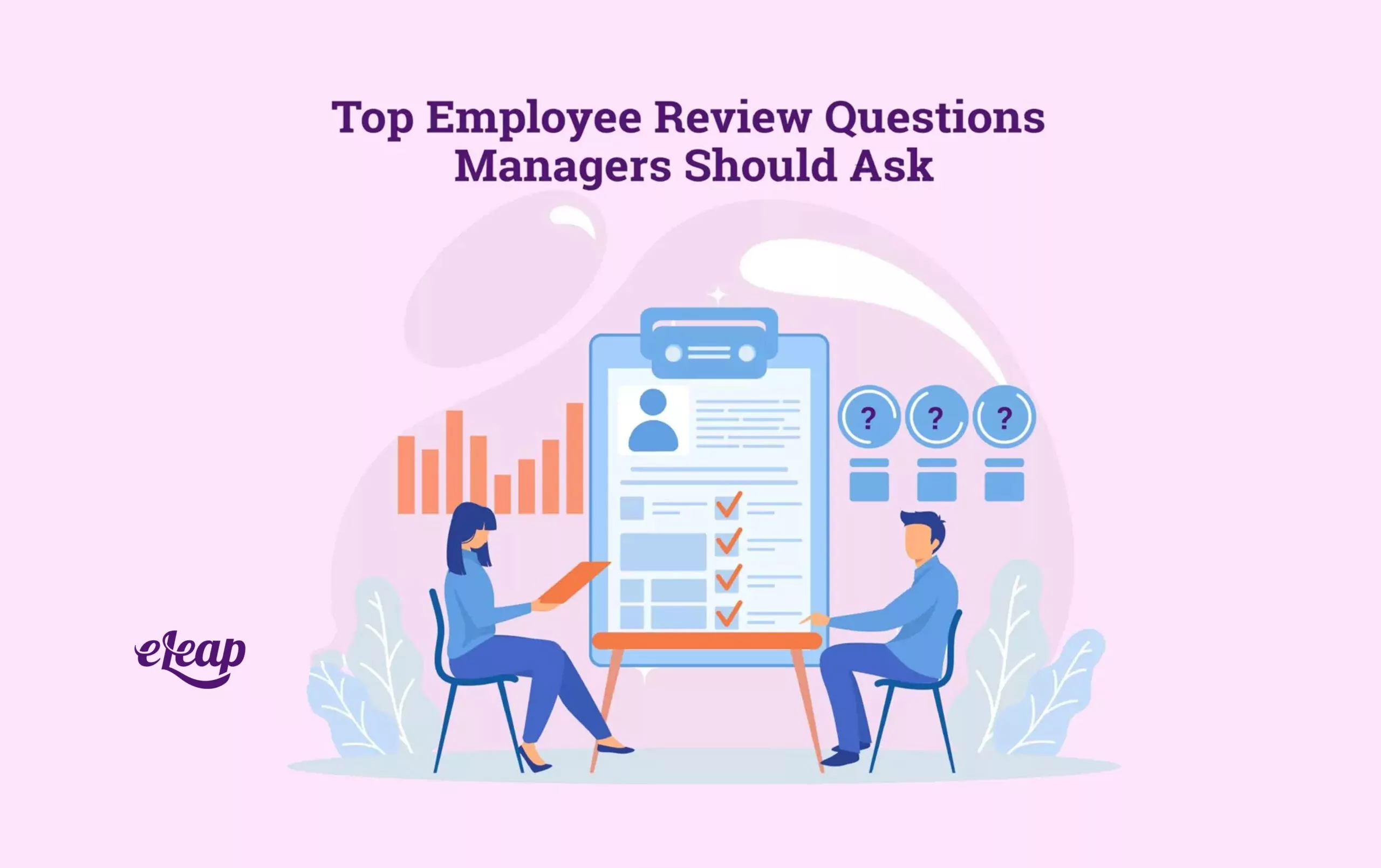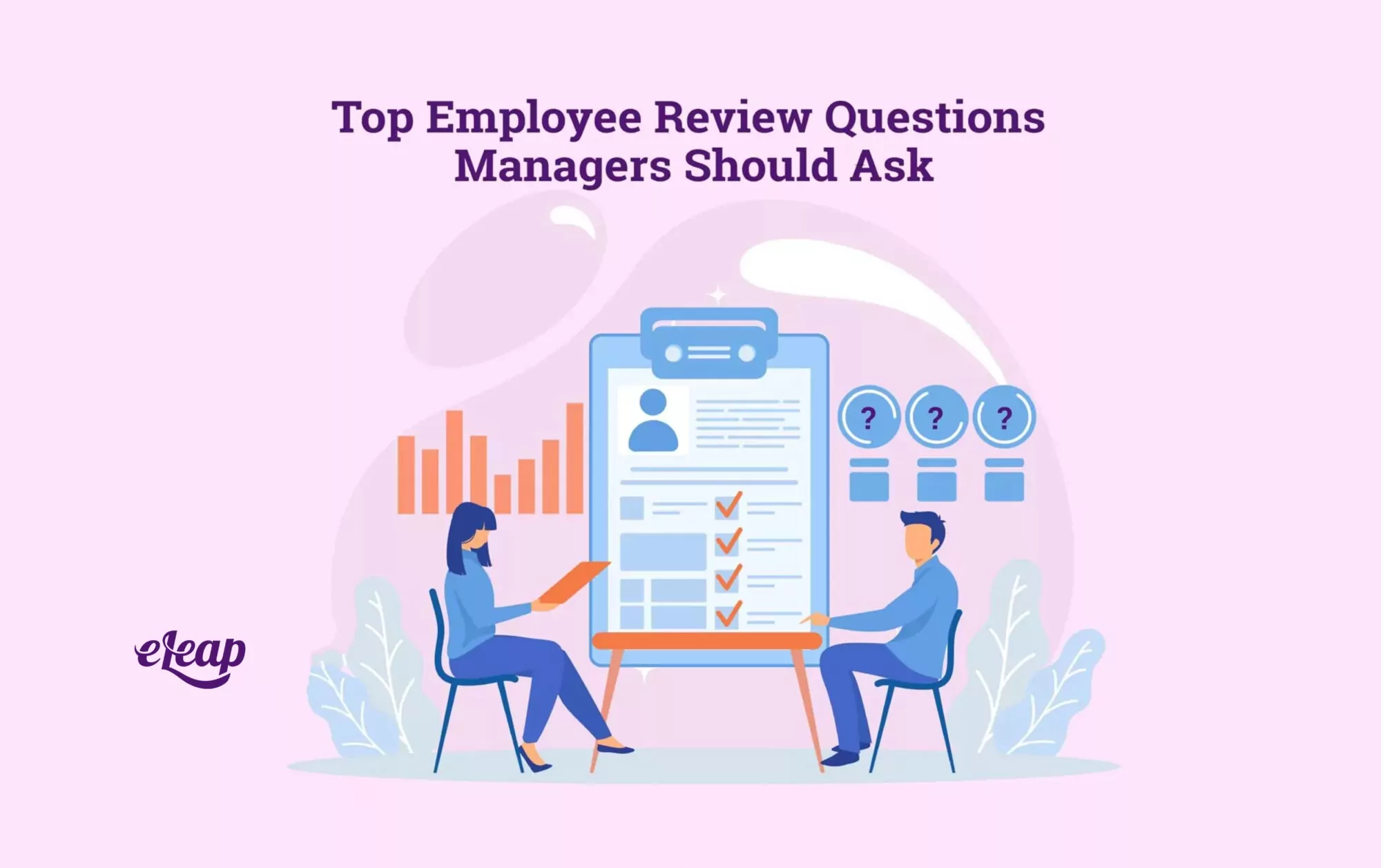Top Employee Review Questions Managers Should Ask

If you are a manager who gives performance reviews, do you know the right employee review questions to ask? Performance reviews can cause anxiety even in the best employees and managers, and it is often possible to forget that it isn’t just about discussing past performance.
It’s about getting to know who the employee is at a deeper level, so managers can better understand their strengths. This will give you a better understanding of how and where to use that employee, the type of training that will work with them, and the best ways to foster that employee’s development.
The Right Employee Review Questions Go a Long Way
Having a list of good employee review questions will help to make it easier for managers, particularly those who are new to the role. Below, we’ll be looking at employee review questions you will want to add to your repertoire if you don’t already have them there.
What Are Some Achievements You’ve Had Recently?
This tends to be a good question to start with because it allows the employee to begin the session with a conversation about their victories. They can start to settle into the review and are less likely to feel quite as nervous. No matter how many times an employee has gone through a performance review, even with the same manager, it can be nerve-wracking. After all, these reviews often play a big role in things like promotions and raises.
The achievements can be large or small—it doesn’t matter. You want to see what your employee feels is important as it relates to your organization and your overall goals, as well as their own goals.
What Do You Like Most About Your Role?
When you ask this question, it gives you a better understanding of what the employee enjoys doing at work. You get a sense of what they find to be fun and engaging in the workplace, and you get a better idea of what challenges them. You will find that the answers to this question can also provide you with a better idea of whether this employee is properly-suited to their role or if they might fit in better elsewhere.
What Would You Change About Your Role?
Let’s be honest, there’s no such thing as a perfect role. Employees at different performance levels will have various ideas about ways that they could potentially improve their productivity and performance. This might require some changes to their role and the duties they have to perform, at least from their perspective.
Asking this question will give you some insight into the types of pain points your employee is dealing with in their role, and you can then start to look for ways to fix them. They may have their own ideas for changing it, as mentioned, but you will want to investigate as well and together come up with a course of action and potential changes that could be made.

What Do You Feel Your Strengths Are and How Do They Help You In Your Role?
This is a question we’ve probably all been asked at some point, but that doesn’t mean it’s not important or relevant. You want to get a good idea of what the employee feels their strengths are both in and out of their role. This will give you a better understanding of who the employee is and the types of skills they could add to your business in addition to what they are already doing. In some cases, this could lead to an expansion of their role, or they might even find a new role in the company.
What Strengths or Weaknesses Do You Want to Focus on in the Coming Months?
When you ask this question, you will get a better idea of what the employee wants to do going forward in the short term. They might be looking to build on some of their strengths, or they might want to shore up some weaknesses they have.
Ask them where they want to place their focus and see what you can do to help them going forward in the next couple of months. It might not always be possible to fulfill their goals/desires right away, as it will depend on how things are going with the rest of the business and employees.
What Has the Experience on the Team Been Like?
Let them know that they can answer honestly without any worry about repercussions. Get a better idea of what it has been like for your employee on the “front lines” with the rest of the team. Are they having any major issues with the work or with other employees? Are there some issues you weren’t aware of that could be causing slowdowns or other issues?
You want to get a sense of how they are fitting in and whether the company culture is still as open and welcoming to them as it should be.
What Is Your Morale and Team Morale Like?
Along the same lines, you will want to ask them about their morale and satisfaction levels. How do they feel when they come to work? What is the rest of the team’s morale like and why? If you find that the morale is low, you will want to try to get an answer as to why it’s low. It might be because the employee doesn’t feel engaged or because they feel you don’t care about their growth and development or any other number of reasons.
If morale is low, you will want to do what you can to get a handle on it and make the necessary changes to boost it.
What Do You Find Motivates You in and Out of Work?
With this question, you will get to know a bit more about the employee on a professional and personal level. You can start to get a better idea of the sorts of things that make them tick and what they could enjoy doing professionally in the future. You will also learn more about what they enjoy doing when they aren’t at work. They might like to spend time with their family, or they might like reading, hiking, etc.
Getting a better understanding of who your employees are will help you, and it will show them that you care about who they are and not just what they can do for you.
What Do You Want When It Comes to Career Advancement?
Let’s be honest. Most people are not going to want to stay in their current role for the rest of their lives at work. They are going to want to find some ways that they can advance. This might include learning a new skill set to eventually transfer to another part of the company, or it might mean looking for a leadership role. Ultimately, people want change and growth, but it will vary from one person to the next.
When you ask this question of your employees, you will get a better idea of what it is they want to do with their careers going forward. You can start to think about the ways you could potentially help to facilitate that.
What Are Your Current Concerns?
Sometimes, there are things that an employee review questions might want to discuss that do not necessarily fit into the categories you have set up for the performance review. That’s not a problem. You should always make time to listen to your workers when they come to you with problems and concerns. Whether it is a new issue or a concern they brought up before that needs more attention, listen to them and find ways to help.
What Could I Do to Improve as a Manager?
You will find that a lot of employees are going to be wary when it comes to answering a question like this. The reason is simple. They fear repercussions if they were to say something that you did not like. You need to make sure they understand that the review is a place of trust and safety. The things they say about what you can do to improve aren’t going to be held against them.
Most of the time, they will provide simple and good suggestions that don’t insult you but rather help you see things from a different perspective. This is good, as it will give you more insight into your overall role.
Employee Review Questions Aren’t Personal
One of the important things to keep in mind is that reviews should never be personal, at least not in a negative way. You can’t tell someone their performance is terrible if you don’t like the car they drive, for example. It shouldn’t be about how much a manager likes someone or not.
The review should focus on what the employee is doing at work including things they are doing well and areas that need improvement. The same is true with regular feedback sessions and meetings. You want to make sure to keep the review professional. Asking the right types of employee review questions questions, as discussed above, helps to ensure you are focusing on the correct elements during the review.